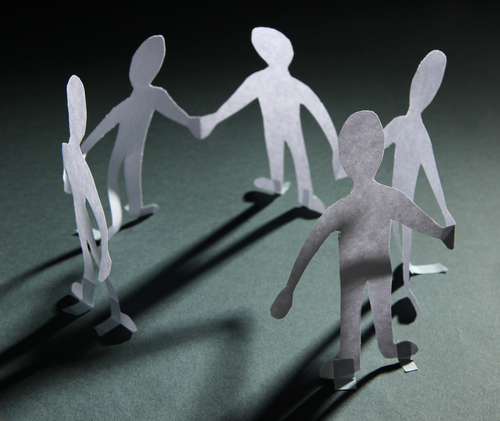 I lost another Facebook friend recently, and I feel the sting of disappointment . . . in myself? In him? In the casual system of social media relationships?
I lost another Facebook friend recently, and I feel the sting of disappointment . . . in myself? In him? In the casual system of social media relationships?
Maybe I said something on this blog that he found objectionable. In my three years of blogging, I have had several people unfriend me because my politics were too liberal for them; earlier this year, based on a blog post I wrote disagreeing with the premise of the Ender’s Game boycott, two friends seem to have cut off ties because I wasn’t liberal enough.
But those two friends never wrote to me personally to explain their defection; after relating their anger at my post in the Newsfeed comments, they apparently clicked a button and that was the end. I gradually began to notice to my regret that neither of them was showing up in my news feed, and a quick search confirmed that they had moved on and away. The loss hurts particularly in the case of the one I have known since childhood, since there are so many shared memories and experiences there that I would have expected to outweigh current political positions.
I’m truly sorry that my views offended these good people, and I certainly could have been wrong about that blog post. But I don’t quite understand the chilly end to the relationship.
I don’t unfriend people simply because I disagree with them about politics or religion. But politics is among the top reasons why people unfriend each other, according to Business Insider‘s report on a study by NM Incite:
- Offensive Comments (55%)
- Don’t know them well (41%)
- Trying to sell me something (39%)
- Depressing comments (23%)
- Lack of interaction (20%)
- Political comments (14%)
- Breakup / divorce (11%)
- Don’t like their friends (8%)
- Update profile too often (6%)
- They add too many people (6%)
- They don’t update enough (3%)
However, I don’t have time or energy to keep up with hundreds of people’s lives either, so I have hidden lots of people I’ve never met from my news feed.
This is one of the differences between Facebook and Twitter. On Twitter there’s no middle option: you either follow someone or you don’t. On Facebook there are many gradations of relationship: Is this a close friend, a friend, or an acquaintance? Do I want all updates, some updates, or none at all? Do I want to add the person to a special list related to a particular interest we share?
Considering that Facebook offers so many options, the stark alternative — “I don’t want this person’s voice in my life anymore at all” — can be hurtful.
I’m not talking about disengaging on social media from people we have never met in person. This happens on Twitter in particular all the time. I’m thinking about people who end relationships on social media with people they also know in person.
Someone pointed out to me recently that Facebook unfriending isn’t that different from the way friends have always grown apart from each other. You stop going out of your way to see each other as you develop different hobbies and views, and eventually you disengage entirely. Her view was that on Facebook, this process is actually less traumatic than it is for in-person relationships, because Facebook friends and acquaintances tend to drift away without awkward silences or ugly confrontations.
That’s a fair point. But I think it’s precisely the lack of awkward silences or ugly confrontations that hurts most. The hollowness I feel is made worse by the fact that other people tend to regard Facebook relationships so casually.






